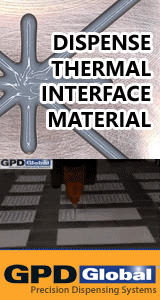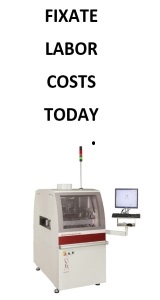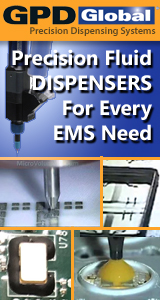Hi!
I recently remarked on a thread that so-called VOC-free fluxes weren't. As a result, I got three private e-mails asking what I meant. As this seems to be unclear, I'm starting a new thread with my explanation, rather than sending out the answers individually.
First of all, what is a VOC? In the widest, literal sense, a Volatile Organic Compound is any organic substance that has a covalent bonded carbon atom and which can evaporate or sublimate into the atmosphere. However, in this context, it must also be a precursor to a photochemical reaction with nitrogen oxides to form a smog nucleus.
There are other definitions of VOCs which are often totally or partially flawed and these are mostly of political, rather than scientific, origin. Many people exploit the loopholes that these definitions create, where others are hindered by them. As an example of the latter, some regulations may forbid the use of even a 1% alcohol-in-water solution, even though the directors in the boardroom of the same factory may be quaffing whisky, whiskey, vodka, gin, beer or any other alcoholic liquor with up to 40% alcohol or more. (And the quasi-totality of alcohol in liquor ends up in the atmosphere, sooner or later.)
However, few regulations, up to now, forbid or regulate the emissions of dangerous VOCs whose vapour pressure is low at ambient temperatures, even though they are used at elevated temperatures where the vapour pressure can be considerable. This is downright stupid.
What is a VOC-free flux? It is one where the solvent system (usually a 2-4 C light alcohol) has been replaced by a non-VOC solvent, usually largely water. But the active components are still organic and, in order to solubilise them, there are also frequently heavy alcohols or derivatives and surfactants whose ambient temperature vapour pressure is low enough to escape VOC regulation. Diglycol ethers or triols may be used for this purpose, for example. Activators may be typically dibasic or tribasic carboxylic acid mixtures. By definition, all these chemicals are brought to over 200�C during soldering and the organic solvents have a vapour pressure approaching 760 mm Hg (atmospheric pressure) at this temperature, so they evaporate quasi-totally. These vapours are decidedly precursors of photochemical reactions with NOxs and are thus smog-forming VOCs. Furthermore, the active acids and some of their atmospheric breakdown compounds are also VOCs. They can partially sublime during the preheating and melt and evaporate during the soldering action (for those who do not know it, sublimation is the passage from a solid phase to a vapour phase without passing through a liquid phase), also releasing smog-precursor VOCs.
What is possibly even less obvious, some of the acids (flux residues) can even slowly sublime at ambient temperature but, being solid, are not classed as VOCs, even though they are. So the "no-clean" residues also may cause smog. I grant you that their "volatility" is very low, but when you consider the total area of all the boards exposed to the atmosphere, this must surely enter into the smog equation.
This is what I mean when I say VOC-free fluxes are not VOC-free. They may escape regulations by their quirky wording but, as sure as I have a keyboard and monitor in front of my eyes, they are smog precursors, just as hydrocarbon fuels and whisky are.
Brian
reply »
![]() Hi!
I recently remarked on a thread that so-called VOC-fre...
- Oct 13, 1999
by
Hi!
I recently remarked on a thread that so-called VOC-fre...
- Oct 13, 1999
by
![]()
![]() Brian:
Nicely done. You're correct ... I never "understoo...
- Oct 13, 1999
by
davef
Brian:
Nicely done. You're correct ... I never "understoo...
- Oct 13, 1999
by
davef
![]()







.gif)